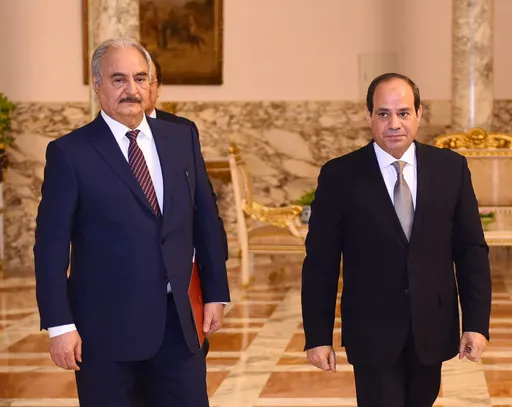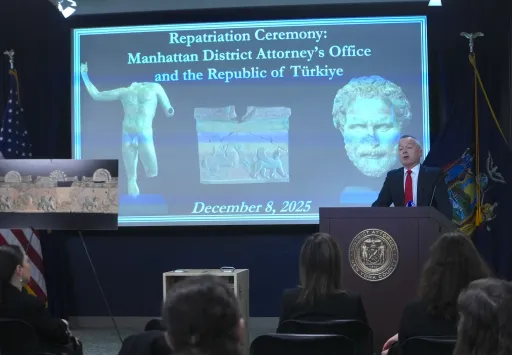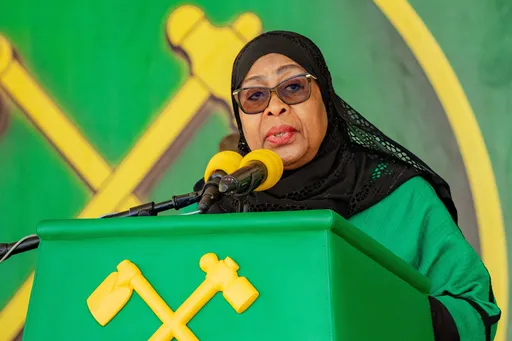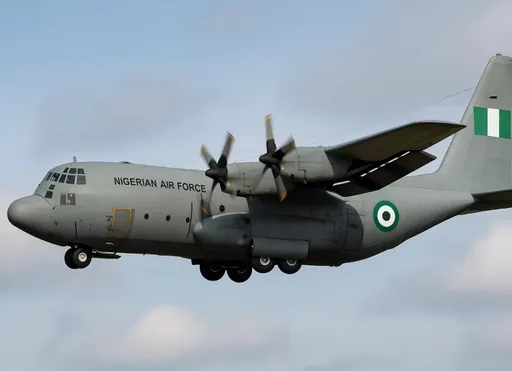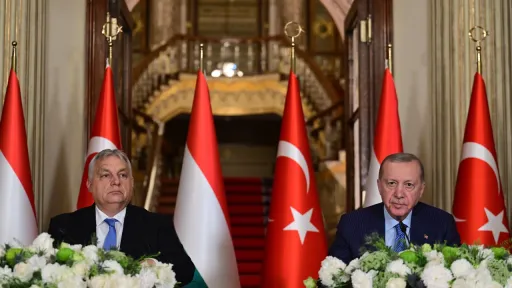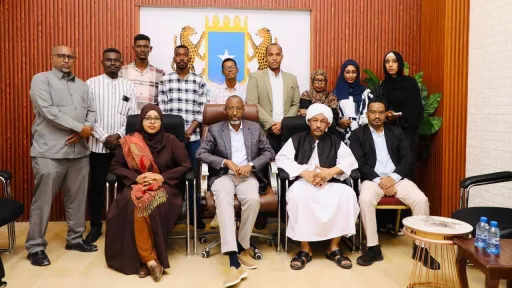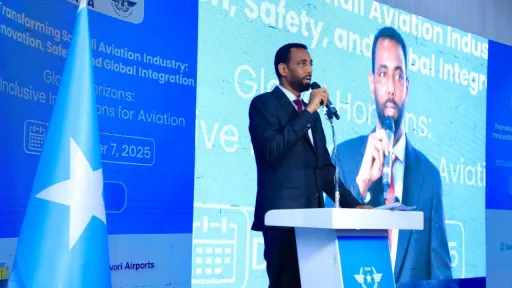By Sylvia Chebet
"Better late than never."
When rights lawyer Francis Boyle uttered those words in response to prosecutor Karim Khan of the International Criminal Court (ICC) seeking arrest warrants against Israeli PM Benjamin Netanyahu, defence minister Yoav Gallant for alleged war crimes, he may have been echoing the feelings of everyone numbed by the horrors in Gaza.
Heart-rending images of injured and dying children, wailing parents digging through rubble with their bare hands for a flicker of life, and hostages holed up in unknown locations, their fate unknown — Gaza has been hell on earth for the last eight months.
With each dawn bringing the possibility of yet more deaths and destruction, pressure had been mounting on the ICC to act.
"What are you waiting for, Mr Khan?" Libya's ambassador to the UN, Taher El-Sonni, asked the ICC prosecutor. "Don't you see the threats to civilians? The world expects the ICC to be courageous and issue arrest warrants against officials of the Israeli regime," he said.
Khan said he had reasonable grounds to believe that Netanyahu, Gallant and three Hamas leaders bear criminal responsibility for war crimes and crimes against humanity in the Gaza Strip since October 2023.
Hamas' ambush on Israel on October 7, in which 1,200 people were killed, has been used by the Netanyahu regime as a convenient excuse for the blitz of gunfire, bombs and missiles it has rained on Gaza from October 8 last year to date.
Khan said Israel had failed to comply with international humanitarian law.
"The means Israel chose to achieve its aim in Gaza – namely, intentionally causing death, starvation, great suffering, and serious injury to body or health of the civilian population – are criminal," the prosecutor submitted.
Boyle, who had convinced Palestinian President Mahmoud Abbas to accept the jurisdiction of the ICC, argued that war crimes and crimes against humanity had been inflicted on Palestinians since the original Nakba back in 1948.
"In 15 years, despite all the atrocities and genocide, war crimes and crimes against humanity, three different independent prosecutors did nothing to help the Palestinians until today. So thank heavens," he told TRT Afrika.
What comes next?
The ICC prosecutor's request goes to a pre-trial chamber, where three judges from Romania, Mexico and Benin will determine whether the conditions for issuing arrest warrants have been met.
However, the judges have no deadline to decide if and when to issue the recommended arrest warrants. On previous occasions, judges have been known to take anywhere from just over a month to several months to take a call on similar requests.
"In the case of his request for warrants against President Vladimir Putin (of Russia) and his underlings there, I believe they got that within four weeks," Boyle recalled.
The law professor at the University of Illinois College of Law in the US believes that international politics could influence the panel's decision. "I am sure the US, Israel and the Zionists will put massive pressure on these ICC judges. So, we will have to see what happens here."
Already, two Republican congressmen in the US have introduced the "Illegitimate Court Counteraction Act" to impose sanctions on ICC officials that go after the country or its allies, including Israel.
"I insist that all attempts to impede, intimidate or improperly influence the court officials must cease immediately," ICC prosecutor Khan emphasised in his May 20 decision.
Should the judges agree there are "reasonable grounds" to believe war crimes or crimes against humanity have been committed, they will issue arrest warrants.
Hurdles to cross
The next big question is: Will Netanyahu, Gallant and the Hamas leaders be arrested?
The Rome Statute, which established the court, obliges all 124 ICC signatory states to arrest and hand over any individual — subject to an ICC arrest warrant — if they set foot on their territory.
The ICC does not have a police force to arrest suspects. Instead, the statute establishing it mandates signatory states to arrest suspects and hand them over to the ICC whenever they enter their territory. However, several states have ignored this obligation and received a slap on the wrist at best.
If the court grants the ICC prosecutor’s requests, the Israeli and Hamas leaders would theoretically join a long list of war crime suspects who remain at large.
"They will be fugitives for the rest of their lives," Boyle said, pointing out that indictments do not curb their freedom to travel.
"The ICC does not have jurisdiction in Israel defined by the 1967 borders, the so-called green line, which is the position the court is taking. So, Netanyahu and the rest of them will probably have to spend the rest of their lives there."
The Israeli leadership, however, enjoys Washington's support and can possibly travel safely to and from that country. "But that's about it," Boyle said.
Gallery of most-wanted
Established in 2002, ICC judges have since issued 46 arrest warrants. According to the Court’s website, 21 people have been detained in the ICC detention centre at The Hague, thanks to cooperation from States, and have appeared before the Court. 17 people remain at large. Charges have been dropped against 7 people due to their deaths.
High-profile names on the ICC's most-wanted list include Russia's Putin, who is facing war crime charges over the war with Ukraine. The court issued an arrest warrant against Putin in March 2023.
Sudan's Omar al-Bashir stands accused of masterminding genocide, crimes against humanity and war crimes in Sudan's Darfur region, where an estimated 300,000 people were killed. An arrest warrant for him was issued in 2009 while he was president. Although al-Bashir was later overthrown and arrested, he was not handed over to The Hague.
Ugandan warlord Joseph Kony, the leader of the Lord's Resistance Army (LRA) accused of war crimes and crimes against humanity, is the ICC's longest-standing fugitive.
An arrest warrant was issued for him in 2005. Earlier this year, the judges allowed prosecutors to bring a hearing on charges against him in absentia.
Despite the harsh and bleak journey ahead, Boyle, who was involved with the International Criminal Tribunal of Yugoslavia (ICTY), believes it is still possible to achieve justice.
"The wheels of international justice are slow, but they do move along," he said.
"I first went after Slobodan Milosevic in the ICC in March 1993. I went after him for genocide, war crimes and crimes against humanity against the Bosnians. Then I convinced the ICTY prosecutor, Carla Del Ponte, to indict Milosevic for almost every crime in the statute, including two counts of genocide."
The ageing Serbian leader was eventually put on trial at The Hague in 2004.
Boyle walked the killing fields of Srebrenica in eastern Bosnia and Herzegovina, where nearly 8,000 people were massacred. He sees the situation in Gaza as being reminiscent of the 1995 genocide.
“40,000 Palestinians have been exterminated. Eighty thousand have been wounded, and all of Gaza has pretty much been destroyed… So if they (ICC) hadn't acted, they would have gone into the dustbin of history."
Questions on targeting Africans
This is the first time the ICC is going after a pro-Western leader.
"The ICC is called the white man's court," Boyle said.
By the time the first prosecutor, Luis Moreno Ocampo, left office in 2012, the ICC had six open investigations — all in Africa – attracting criticism that it was essentially a European court designed to prosecute Africans.
The request for warrants against Israel's Netanyahu and Gallant possibly breaks that pattern.
"Today, we once again underline that international law and the laws of armed conflict apply to all. No foot soldier, no commander, no civilian leader – no one – can act with impunity," Prosecutor Khan said.
Boyle reckons that "it's a very tough situation to stop a genocide when it's going on". But he is hopeful that the indictments may get the Israeli military to reconsider its decisions and maybe contribute to an immediate and permanent ceasefire in Gaza.
Beyond the Middle East, some now also want Israel's allies, especially those supplying it with arms, to be brought to account.
➤ Click here to follow our WhatsApp channel for more stories.












